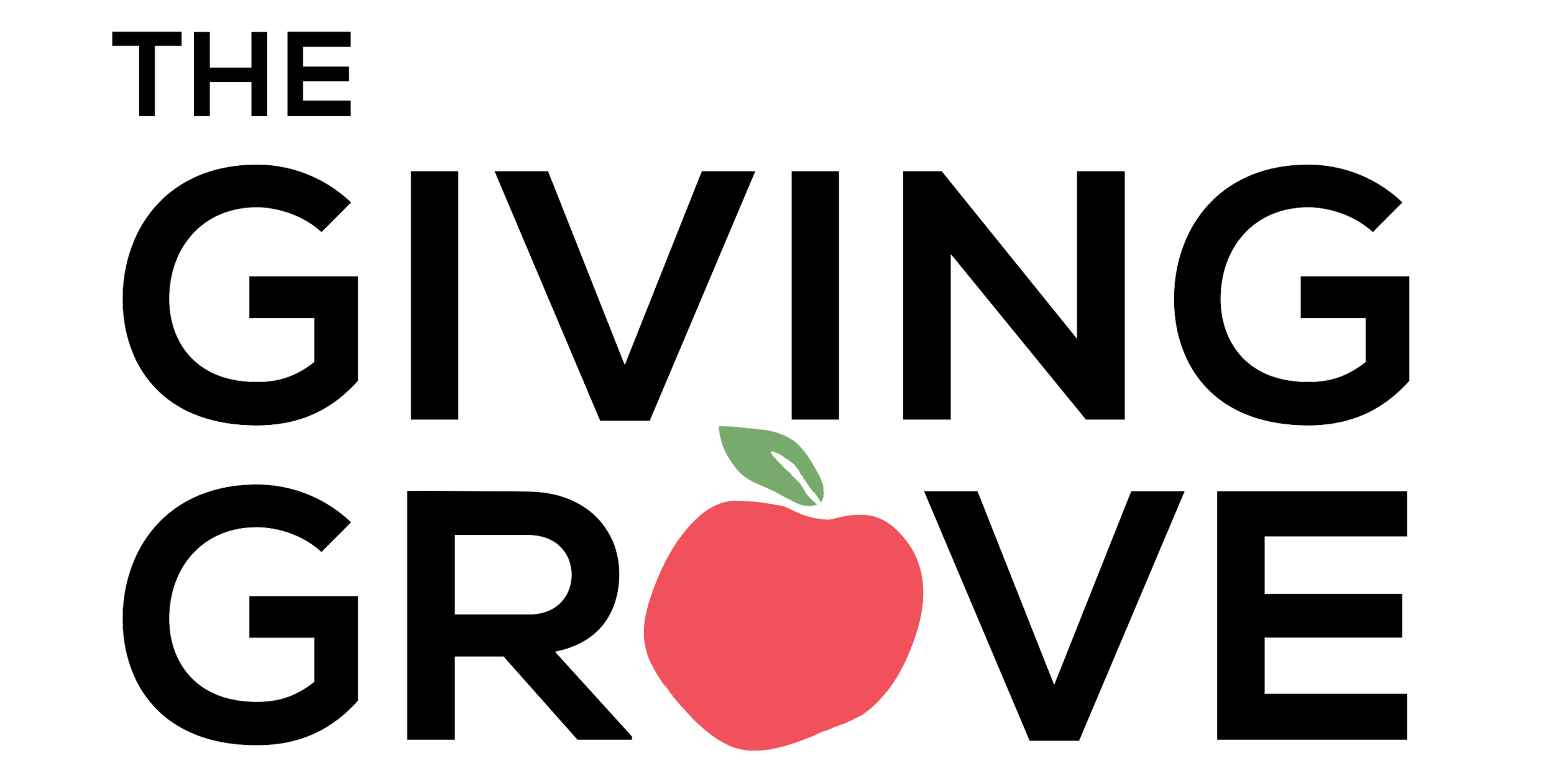Shifting from ”Desert” to “Apartheid”
The language we use when speaking about hunger and food inequality is important. Occasionally, common-place terminology changes. In this blog, communications manager Sarah Sikich explains the terminology shift from “food desert” to “food apartheid.” If you enjoy this blog, consider subscribing to The Serving, Giving Grove’s quarterly newsletter.
Historically, communities lacking access to fresh food have been described as “food deserts.” Food advocate Karen Washington refers to “food desert” as an “outsider’s term.” According to Washington, it’s a term that people who don’t live in a community experiencing food insecurity have developed to help other “outsiders” understand the concept. But the folks who live in these neighborhoods generally don’t classify their communities as “food deserts.” To quote an orchard steward, “I don’t like the term ‘food desert.’ It makes it sound like we can’t change our circumstances. Deserts don’t disappear.”
The term “food desert” suggests that only the lack of access to food is holding the community back. But it’s not only a lack of rain that defines a desert, and this situation is no different. Similarly, deserts can be seen as arid, lifeless ecosystems, but the residents of communities with inadequate food access would argue that their communities are full of life and culture and in no way are arid and lifeless.
Washington and other activists advocate for a shift to the term “food apartheid.” Due to the negative connotation behind the word “apartheid,” this term can make people uncomfortable. But the most important thing about this alternative term is that it comes from the people closest to the inequities, people who understand the realities. Let’s break it down to build understanding.
Apartheid (/əˈpärtˌ(h)āt,əˈpärtˌ(h)īt/ NOUN): Apartheid means a system of discrimination or segregation based on race or other grounds. In most circumstances, this term feels negative and points out a discrepancy in how society treats specific groups.
When combined with the word “food,” it describes the systematic inadequacies and mistreatments that lead to a neighborhood having little to no access to fresh and healthy foods. Washington explains that lack of food access is rarely solved by a new grocery store or more bus routes. The problem is almost always rooted in generations of divestment in a community resulting from racial and economic discrimination.
The term “food apartheid” asks us to look at the systematic issues that created the food landscape of a community. “It brings us to the more important question: What are some of the social inequalities that you see, and what are you doing to erase some of the injustices?” Washington said during an interview with Guernica magazine (guernicamag.com).
“It brings us to the more important question: What are some of the social inequalities that you see, and what are you doing to erase some of the injustices?”
When we break it down, Washington’s suggested term “food apartheid” succinctly describes a system we already know exists. And, while everyone may not agree on one descriptor, terms like food apartheid are important for all of us to listen to and understand. Washington, a retired physical therapist and longtime resident of the Bronx, co-owns a 5-acre cooperative farm in Orange County, NY. As a community gardener and board member of the New York Botanical Gardens, she worked with Bronx neighborhoods to turn empty lots into community gardens. She actively advocated for garden protection and preservation while encouraging residents to grow their own food.
As a member of the La Familia Verde Community Garden Coalition, Washington helped launch City Farms Market, bringing fresh garden vegetables to her neighbors. She also co-founded Black Urban Growers (BUGS), an organization of volunteers committed to building networks and community support for Black growers in urban and rural settings. In 2012, Ebony magazine voted Washington one of the 100 most influential African Americans; in 2014, she received the James Beard Leadership Award.
Karen Washington, Activist, Advocate, & Farmer
Given her decades of advocacy, no one is better positioned than Washington to explain the concept of food apartheid and how it relates to the food justice movement. Washington will be joining The Giving Grove on August 4, 2022 from 12:30 to 1:30 pm CST on Zoom to discuss this terminology, along with the challenges of green gentrification, her passion for encouraging people to grow their own food, and her advice for urban agriculture non-profits. Bring your questions, and don’t miss this opportunity to soak up wisdom from the woman The New York Times has called “urban farming’s de facto godmother.” (This is a free event, but registration is required.)


